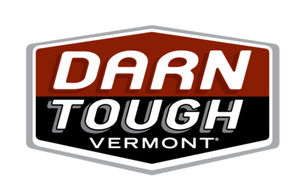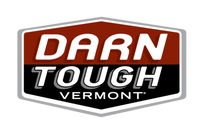The History of Merino Sheep and Wool Manufacturing in Vermont

Know any folks that pursue the thing they love to the highest degree? For us that’s making socks, specifically Merino Wool socks. Wicking, comfortable, durable, thermoregulating, natural — we love Merino Wool for a lot of reasons.
This year marks our 20th anniversary of making socks right here in Vermont, a place and people that we love. Vermont has a rich history of sheep farming and wool textiles. From the textile mill history behind our Nantanna location, to our commitment to Merino Wool, to the community itself, we’d like to think we’re keeping a legacy alive.
That’s no small claim, so we’re going to take a beat and dive into the history of Vermont, Merino Sheep farming, and wool textile manufacturing right here in Northfield.
William Jarvis & the Merino Sheep Express
Vermont’s Merino Wool history owes a lot to William Jarvis, Thomas Jefferson’s Consul to Portugal in the 1800s. At that point in time, Spain held a monopoly on Merino Wool, a fabric prized by European royalty for suppleness and breathability, hard to come by qualities in an era dominated by rougher forms of wool, flax, and hand-sewn cotton.
When the Napoleonic wars broke out, the once-proprietary Merino Sheep were being sold off to broker Spanish nobility’s exit from the beleaguered country. Seeing a potential boon to his fellow countrymen, Jarvis swooped in and bought up something like 15,000 Spanish Merino Sheep, and shipped them off to the US. The Morgan Horse may be Vermont’s state animal, but roll it back a few centuries, and it could have been the Merino Sheep.
When Jarvis resettled in Weathersfied, Vermont, he brought the Spanish import with him. The introduction of the breed coincided with two US trade embargos cutting off the import of wool. Meanwhile, Vermont farmers were contending with terrain that was rocky and stubborn to grow crops, and the Merino Sheep was a versatile animal that thrived in pretty much any environment.
The demand was there, and farmers gladly went all in. Textile manufacturers were offering nearly 100% more for Merino Wool than normal wool, with Merino rams selling for as high as $1,500 each, compared to $2.00 for a common sheep — in short order, Vermont was experiencing a Merino Wool boom.
Northfield, Sock (and Wool) Capital of the World

Northfield wool and textile history dates back to Elijah Paine. Paine was a Revolutionary War veteran, Federal Judge, and US Senator from Vermont that owned thousands of sheep, and went on to establish the town’s textile industry.
When the war of 1812 created a critical need for woolen goods, and trade with great Brittan was cut off, Elijah’s saw how local manufacturing could benefit what was still a sleepy hamlet.
Elijah built a four-story mill in 1812, establishing the center of what is now downtown Northfield. The Paine mill employed 175-200 workers at its peak, and supported countless others indirectly. After the Paine mill, the Gould and then Davis mills in Northfield falls continued to turn out world-class woolen goods, including outfitting David Byrd’s historic first flight to the South Pole in 1929.

Northfield Mills (different from the Whetstone Drive facility that the Cabots would go on to build in 1995) was next, with one of its facilities featuring the now-iconic Nantanna smokestack, which means “Fine Spinner.” Northfield Mills were the last to hold the woolen textile torch in Northfield, continuing to be the home for various textile manufacturers until 1970, when antiquated equipment left mill owners unable to compete in the market.
All told, Northfield counts over nearly 160 years of history in wool and textile manufacturing from this time period — a legacy that would soon be continued.
Marc Cabot & the Founding of Cabot Hosiery Mills

The family history behind Darn Tough Vermont dates back to 1978 when Marc Cabot, father of Darn Tough founder Ric Cabot, established Cabot Hosiery Mills on Main Street in Northfield. (An argument could be made to date it back further; Marc's father Tim was in the sock-making business in the 40's.)
The 80’s and 90’s saw Cabot Hosiery Mills grow into a prosperous manufacturer, building a new 56,000-square-foot facility and providing steady local employment. But when global trade agreements lead to companies sending their goods to be manufactured overseas, the Cabot’s recognized that something radical had to change.

That change came in the form of Darn Tough Vermont — a sock brand launched in 2004 that stood on quality over quantity, and would continue to be made right in Vermont. By time 2016 rolled around, Darn Tough had expanded enough to lease the 7 Belknap space in Northfield’s historic Nantanna building.
Darn Tough operations at Nantanna started with sales, marketing, and storage. After moving sales and marketing into our Waterbury location in 2020, the Nantanna space began serving as our finishing and final quality control location.
When you break it down, Darn Tough is a producing a woolen good right in Vermont — even finishing our socks in the final building to house Northfield’s first wave of textile manufacturing. That’s a pretty cool continuation of history.
Or as Karen Halsted, Board Member of Northfield Historical Society, puts it: “You’re bringing back something that was so important to Northfield. It’s part of our history and the growth of our town — to have it back again is amazing.”
Making Socks in the Community that Made Us
Ric Cabot’s concept of a high stitch count, non-slip sock that’ll last multiple thru-hikes pivoted the company toward what Vermonters could offer best: quality, backed by a Lifetime Guarantee.
Darn Tough’s success hinged on the power of Merino Wool, a fiber that provided the durability necessary to back the socks with that guarantee. Despite the lower prices of cotton sock multi-packs sold at box stores, consumers were happy with a product they could count on, mile after mile, year after year.

Just as important, the folks that support Darn Tough are happy to support the people that make our socks right here in Vermont, with the highest quality yarns from around the world. From people, to product, and place, we’re proud to be a part of our state’s textile history.
Two decades later, we’re standing by our mission statement: “To make the world’s best socks and back them with our Unconditional Lifetime Guarantee.”
We aim to continue the Vermont legacy of working with wool, and honoring our commitment to community that made Darn Tough possible.







